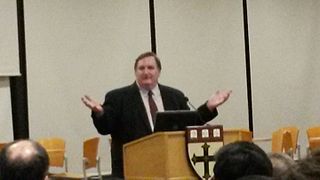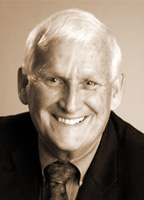Related Research Articles

"Junk food" is a term used to describe food that is high in calories from macronutrients such as sugar and fat, and often also high in sodium, making it hyperpalatable, but with insufficient dietary fiber, protein, or micronutrients such as vitamins and minerals. It is also known as "high in fat, salt and sugar food". The term junk food is a pejorative dating back to the 1950s. Many variations of junk food can be easily found in most supermarkets and fast-food restaurants. Due to easy accessibility, commercially-oriented packaging, and often-low prices, people are likely to consume it.

Chocolate addiction is a compulsive desire to eat chocolate despite negative consequences.
A food addiction or eating addiction is any behavioral addiction characterized primarily by the compulsive consumption of palatable and hyperpalatable food items. Such foods often have high sugar, fat, and salt contents (HFSS), and markedly activate the reward system in humans and other animals. Those with eating addictions often overconsume such foods despite the adverse consequences associated with their overconsumption.

David S. Ludwig is an American endocrinologist and low-carbohydrate diet advocate in Boston, Massachusetts. He is a promoter of functional medicine.
A food craving is an intense desire to consume a specific food, and is different from normal hunger. It may or may not be related to specific hunger, the drive to consume particular nutrients that is well-studied in animals. In studies of food cravings, chocolate and chocolate confectioneries almost always top the list of foods people say they crave; this craving is referred to as chocoholism. The craving of non-food items as food is called pica.

Kelly David Brownell is a clinical psychologist and scholar of public health and public policy at Duke University whose work focuses on obesity and food policy. He is a former dean of Duke's Sanford School of Public Policy. Noted for his research dealing primarily with obesity prevention, as well as the intersection of behavior, environment, and health with public policy, Brownell advised former First Lady Michelle Obama's initiatives to address childhood obesity and has testified before Congress. He is credited with coining the term "yo-yo dieting", and was named as one of "The World's 100 Most Influential People" by Time Magazine in 2006.
Janette Cecile Brand-Miller, also known as Jennie Brand-Miller, Janette Cecile Brand and GI Jennie, is an Australian academic who holds a chair in human nutrition in the School of Life and Environmental Sciences at the University of Sydney. She is best known for her research and publications on the glycemic index, a term originated by David J. Jenkins of the University of Toronto, and its role in human health.
Nutritional rating systems are used to communicate the nutritional value of food in a more-simplified manner, with a ranking, than nutrition facts labels. A system may be targeted at a specific audience. Rating systems have been developed by governments, non-profit organizations, private institutions, and companies. Common methods include point systems to rank foods based on general nutritional value or ratings for specific food attributes, such as cholesterol content. Graphics and symbols may be used to communicate the nutritional values to the target audience.
Obesity in Mexico is a relatively recent phenomenon, having been widespread since the 1980s with the introduction of ultra-processed food into much of the Mexican food market. Prior to that, dietary issues were limited to under and malnutrition, which is still a problem in various parts of the country. Following trends already ongoing in other parts of the world, Mexicans have been foregoing the traditional Mexican diet high in whole grains, fruits, legumes and vegetables in favor of a diet with more animal products and ultra-processed foods. It has seen dietary energy intake and rates of overweight and obese people rise with seven out of ten at least overweight and a third clinically obese.

David Bradley Allison is an American obesity researcher, biostatistician, and psychologist. He is the dean of the Indiana University School of Public Health-Bloomington and, in 2007, was one of the top 10 scientists in the world awarded the most NIH grants. Allison was previously Distinguished Professor, Quetelet Endowed Professor, and Director of the NIH-funded Nutrition Obesity Research Center at the University of Alabama at Birmingham (UAB).

George L. Blackburn was the S. Daniel Abraham Professor of Nutrition and associate director of the division of nutrition at Harvard Medical School. He was also director of the Center for the Study of Nutrition Medicine (CSNM) in the Roberta and Stephen R. Weiner Department of Surgery, and director of the new Feihe Nutrition Laboratory at Beth Israel Deaconess Medical Center (BIDMC), Boston, Massachusetts.

The National Institute of Nutrition (NIN) is an Indian public health, nutrition and translational research centre located in Hyderabad, India. The institute is one of the oldest research centres in India, and the largest centre, under the Indian Council of Medical Research, located in the vicinity of Osmania University. The institute has associated clinical and paediatric nutrition research wards at various hospitals such as the Niloufer Hospital for Women and Children, the Government Maternity Hospital, the Gandhi Hospital and the Osmania General Hospital in Hyderabad.

Robert H. Lustig is an American pediatric endocrinologist. He is professor emeritus of pediatrics in the division of endocrinology at the University of California, San Francisco (UCSF), where he specialized in neuroendocrinology and childhood obesity. He is also director of UCSF's WATCH program, and president and co-founder of the non-profit Institute for Responsible Nutrition.
Nutrition psychology is the psychological study of the relationship between dietary intake and different aspects of psychological health. It is an applied field that uses an interdisciplinary approach to examine the influence of diet on mental health. Nutrition psychology seeks to understand the relationship between nutritional behavior, mental health and general well-being. It is a sub-field of psychology and more specifically of health psychology, and may be applied to numerous related fields, including psychology, dietetics, nutrition, and marketing.
Barry Michael Popkin is an American nutrition and obesity researcher at the Carolina Population Center and the W.R. Kenan Jr. Distinguished Professor of Nutrition at the University of North Carolina at Chapel Hill School of Public Health, where he is the director of the Global Food Research Program. He developed the concept of "nutrition transition". He is the author of over 650 journal articles and a book, The World is Fat, translated into a dozen languages.

Taylor C. Wallace is an American food and nutrition scientist and media personality. Wallace is the principal consultant at the Think Healthy Group, an adjunct clinical associate professor in the School of Medicine and Health Sciences at George Washington University, and an adjunct associate professor in the Gerald J. And Dorothy R. Friedman School of Nutrition Science and Policy at Tufts University. Wallace has previously served in senior staff positions at The National Osteoporosis Foundation, and Council for Responsible Nutrition. He serves as the Editor-in-chief of the Journal of Dietary Supplements and has authored over 100 research studies.
Dariush Mozaffarian is a cardiologist, Jean Mayer Professor at the Friedman School of Nutrition Science and Policy at Tufts University, Professor of Medicine at Tufts School of Medicine, and an attending physician at Tufts Medical Center. His work aims to create the science and translation for a food system that is nutritious, equitable, and sustainable. Dr. Mozaffarian has authored more than 500 scientific publications on dietary priorities for obesity, diabetes, and cardiovascular diseases, and on evidence-based policy approaches and innovations to reduce diet-related diseases and improve health equity in the US and globally. Some of his areas of interest include healthy diet patterns, nutritional biomarkers, Food is Medicine interventions in healthcare, nutrition innovation and entrepreneurship, and food policy. He is one of the top cited researchers in medicine globally, he has served in numerous advisory roles, and his work has been featured in an array of media outlets.
Clare Elizabeth Collins is an Australian dietician who is Professor of Nutrition and Dietetics at the University of Newcastle. She serves as Director for Research in the School of Health Sciences and Deputy Director of the Priority Research Centre. She was awarded the 2017 Hunter Medical Research Institute Researcher of the Year and is a Fellow of Dietitians Australia.
Kristie L. Ebi is an American epidemiologist whose primary focus is the impact of global warming on human health. She is a professor of Global Health and Environmental and Occupational Health Sciences in the Department of Global Health at the University of Washington.
Melinda Annetta Beck is an American nutritionist and professor at the Gillings School of Global Public Health at the University of North Carolina at Chapel Hill where she also serves as interim department chair. Her research investigates the relationship between nutrition and immune response to infectious disease. She was elected Fellow of the American Association for the Advancement of Science in 2022.
References
- ↑ Stern, Judith (2015). Obesity: A Reference Handbook, 2nd Edition. ABC-CLIO. p. 165. ISBN 9781440838057.
- 1 2 "Adam Drewnowski, PhD, MA".
- ↑ "Chocoholics may be able to control craving with a drug". USA Today . Associated Press. Retrieved 8 May 2014.
- ↑ Huget, Jennifer (7 October 2008). "New System Could Help Us Compare Apples and Oranges". The Washington Post . Retrieved 8 May 2014.
- ↑ Pollan, Michael (22 April 2007). "You Are What You Grow". The New York Times. Retrieved 8 May 2014.
- ↑ Eng, Monica (12 September 2012). "Want cheap nutritious food? The solution lies in cooking". Chicago Tribune . Archived from the original on October 8, 2012. Retrieved 11 February 2015.